Maybe it is time to set up an early style guillotine?
if you could get away with it.
if you could get away with it.
The final period of Gnaeus Dolabella’s consulship saw the first incursion from Britain as a crazed tribe sought to take advantage of the goods readily on sale in Atrebates.
Good to see early Brits leading the way with regards to the booze cruise.
Maybe it is time to set up an early style guillotine?
if you could get away with it.
Good to see early Brits leading the way with regards to the booze cruise.
Very troubling if gripping stuff with the populists finally gaining control. Already there seems to be considerable problems following from this, and it is likely only going to get worse. To which I can only say, wonderful (for us readers, not so much for you!)!
Dang. You beat me to it.
The Populists are turning out to be, indeed, the bad news that was always forecast. Oh well, we'll bid adieu to the peaceful expansion of Roman 'protection' for a while, and instead we'll see what amount of infighting we can witness.
Now, let's just hope that none of the other powers (Egregious Egypt, the Slippery Seleucids or the Pestilent Pontics) don't scent the blood in the water and descend on the Roman Republic...
Now we have the Populist in power ... that is niceI assume that the subtler ways to remove them did not work and that it is time to brace for impact and watch the nasty civil war that is brewing. It is almost sure that when it happens Rome will lose some provinces to the remaining powers that border them ...
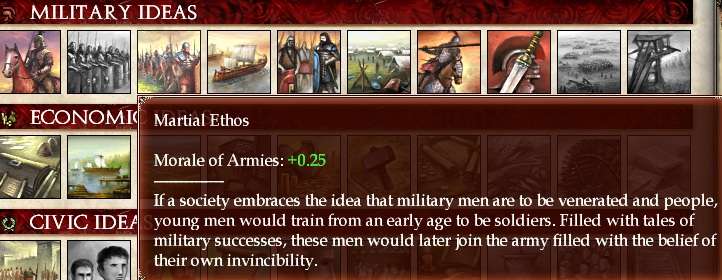
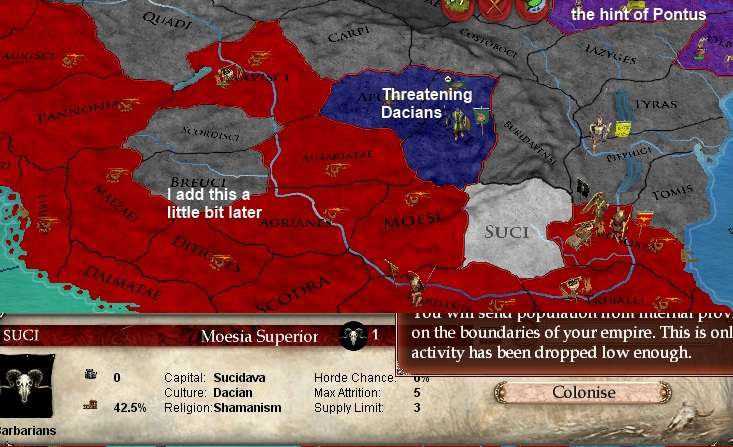
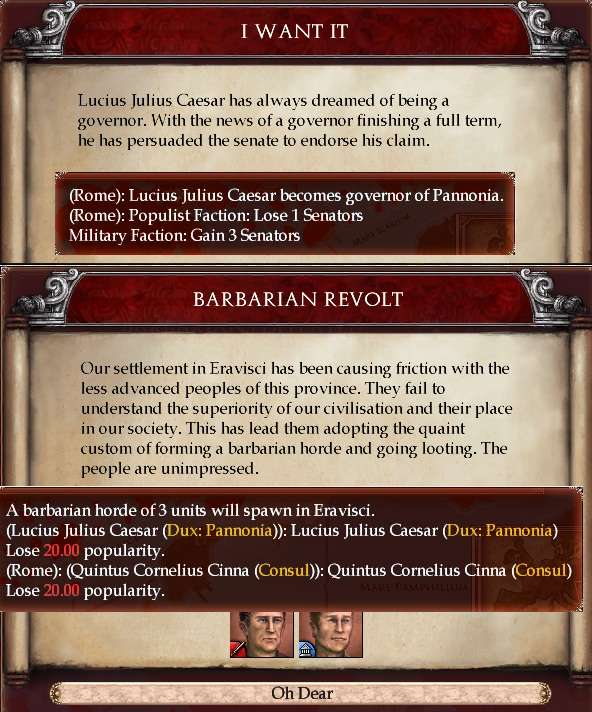
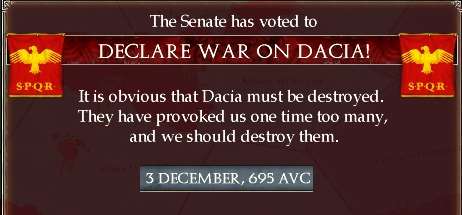
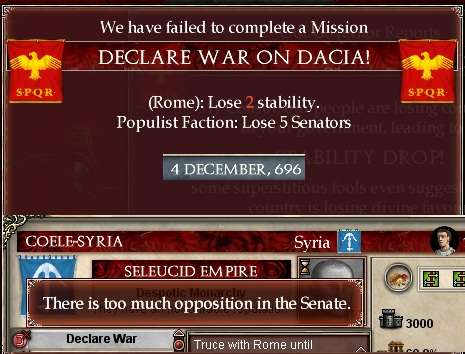
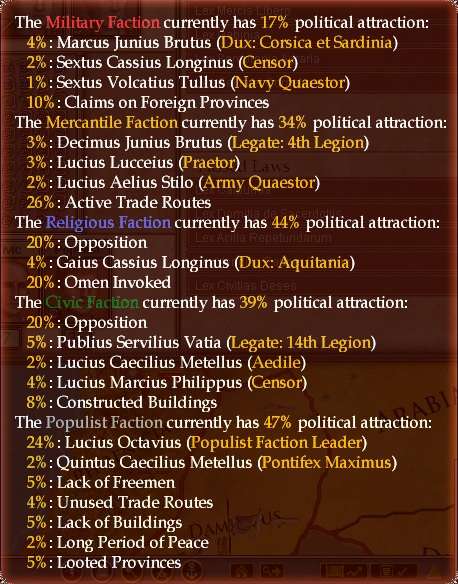
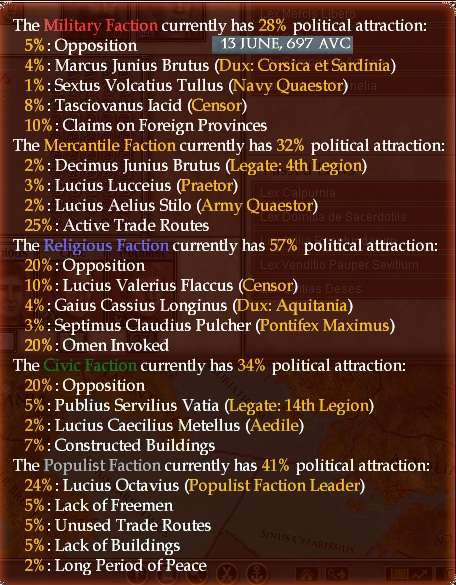
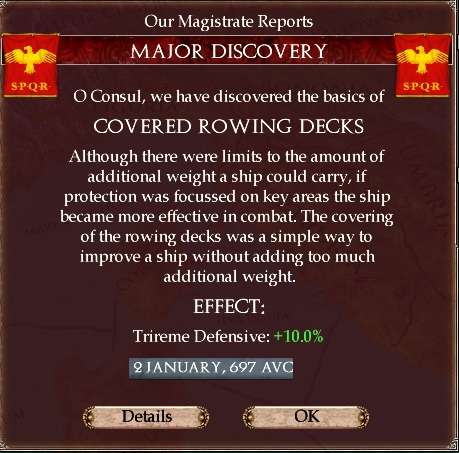
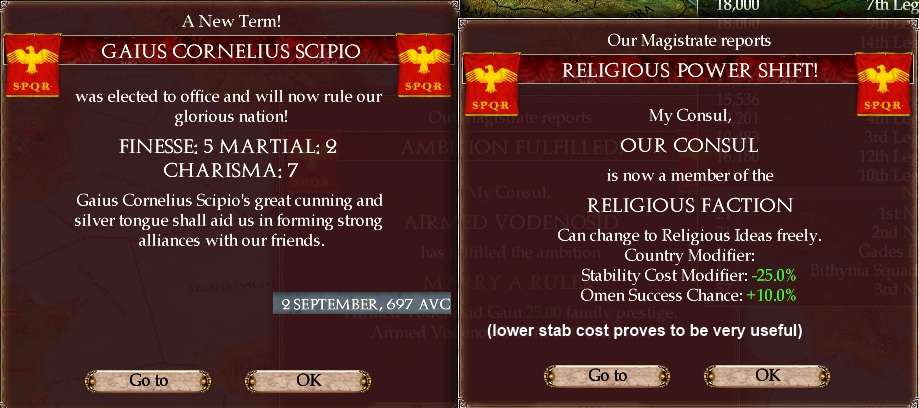
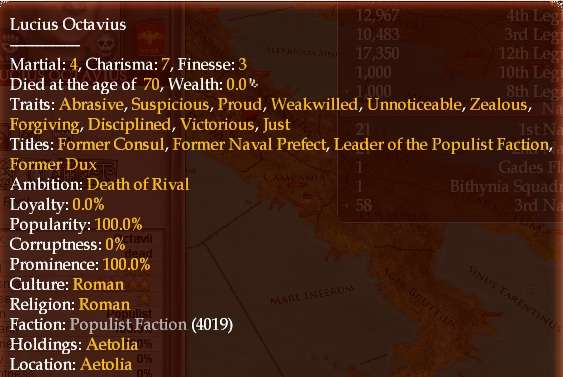
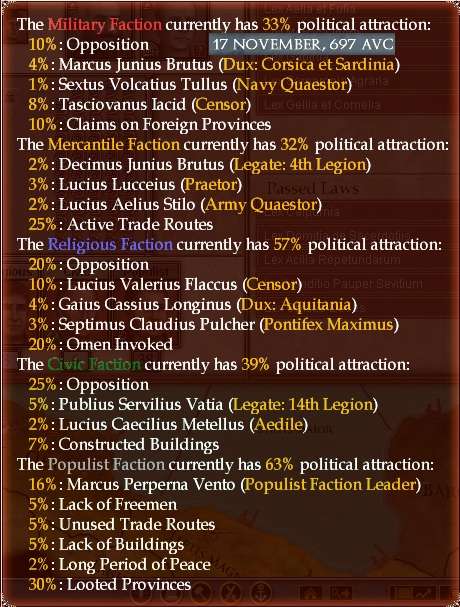
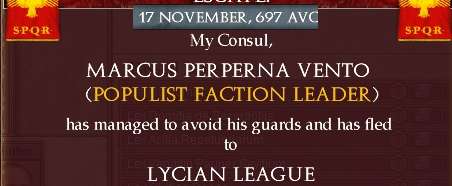
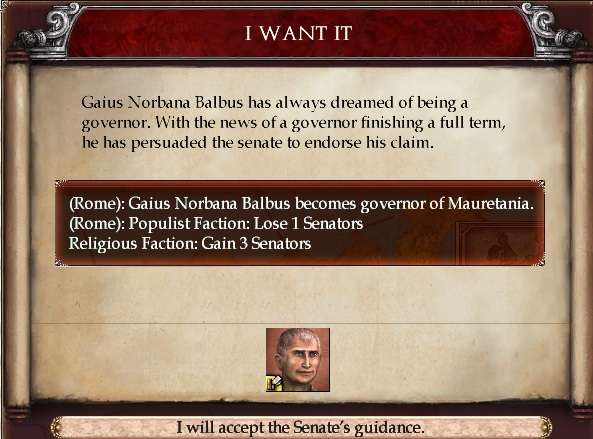
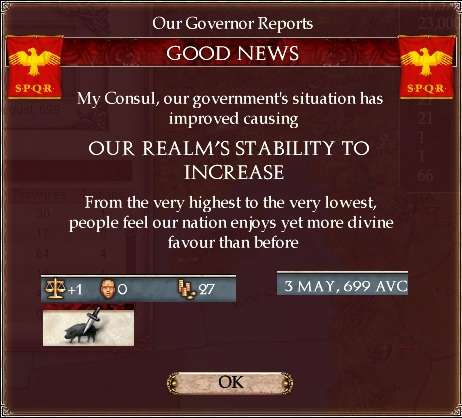
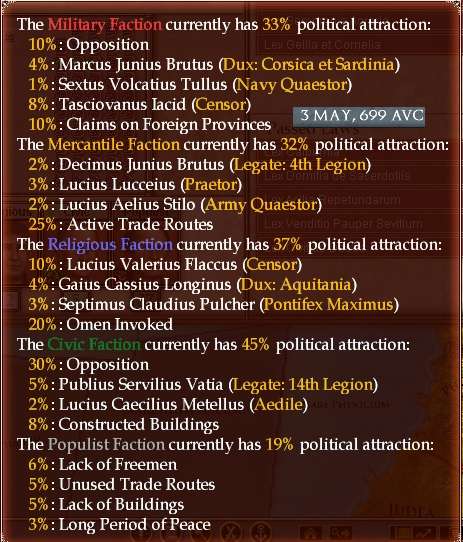
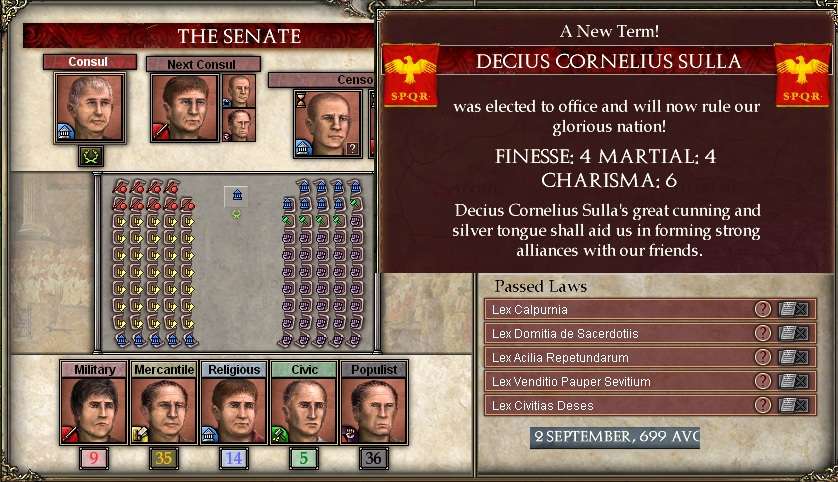
well all of you who have been wanting a bit more robust approach to domestic politics will be delighted at the next two updates ... the first one just dips a toe in some very murky waters, but once you have a taste for these things it does lead onto harder stuff.
However, even though the Populists had lost the Consulship they were strong enough to block any further Roman expansion either on the Danube or in the East.
Ah yes, it might seem that exiling someone is not physically or mentally dangerous, or habit-forming, but it opens the door to the heavier stuff. Exiling: the gateway drug that directly leads to assassination and sham judicial executions.
It looks like you've effectively marginalized the Populists (and in just four short years - impressive), but using my finely honed reading-the-lines technique, it appears that not all is as it seems. I wonder if the next wave to rock the Republican boat will come from inside or outside?
Fascinating update. I really like the way you capture the internal conflict of the state. First rate.
The fools! They allow the tyrannical Dacia to continue running amok, daring as she does to live peacefully!
As ever, great stuff, very much enjoying the constant political machinations. Very intrigued as to what the Populists will try next.
Just as it looks like the Populists are going to be smacked into place, you go ahead and say that it was "an illussion that was going to be shattered." Well goddamit!
In spite of all the good work done to contain the populist, all of the update reeks of too little ( otherwise you would punish the Dacians for their arrogance of being in their homeland) and most likely too late to avoid some serious consequences. In fact I wonder if this wasn't worse if you look at the long term ...
Anyway, long live to Decius Sulla and that his consulship is not rudely interrupted by some populist mob
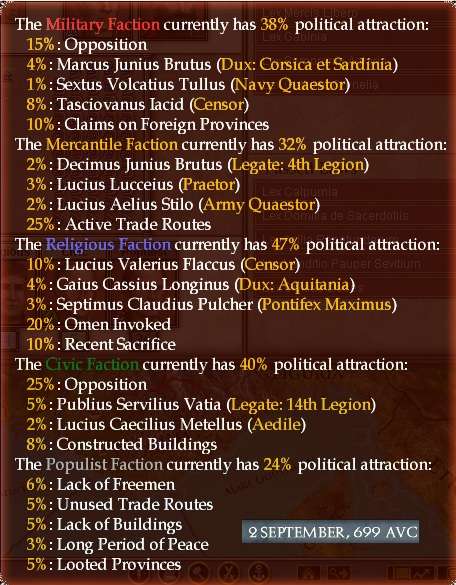
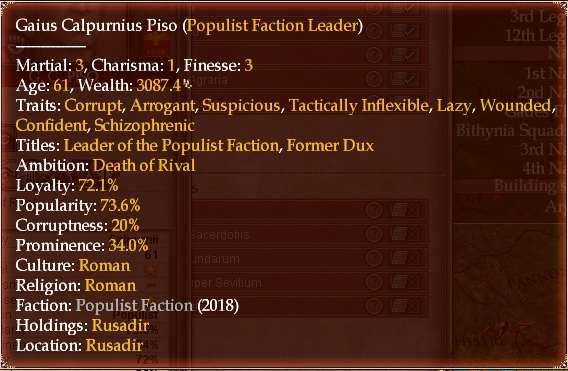
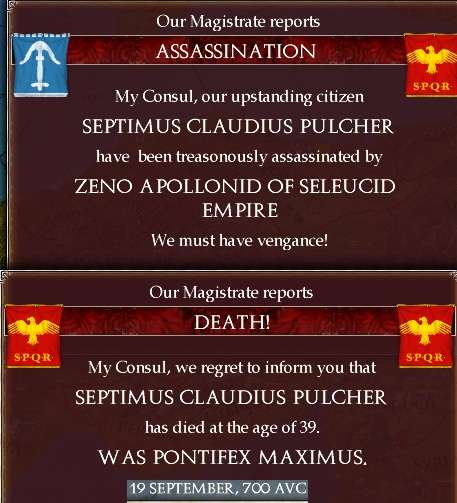
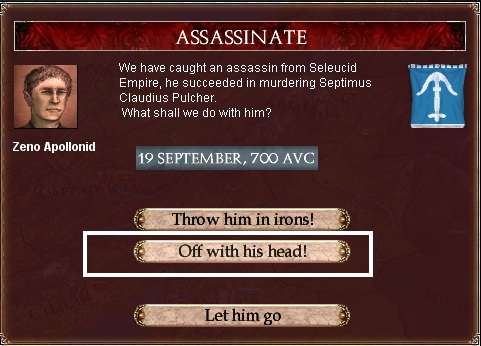
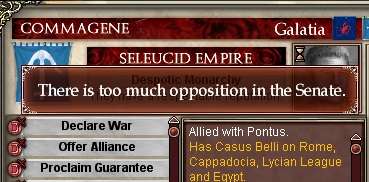
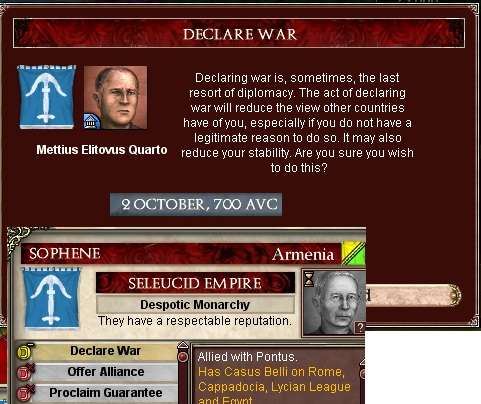
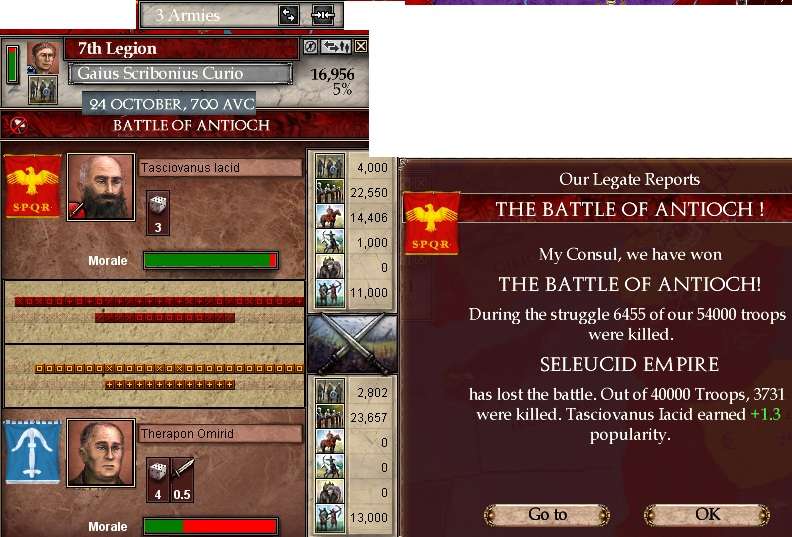
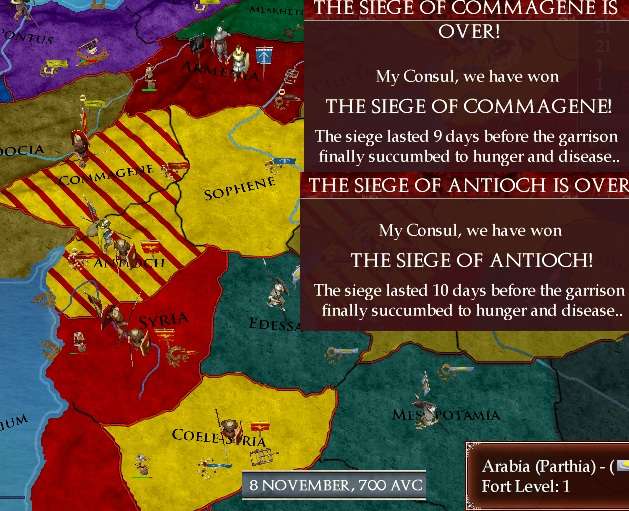
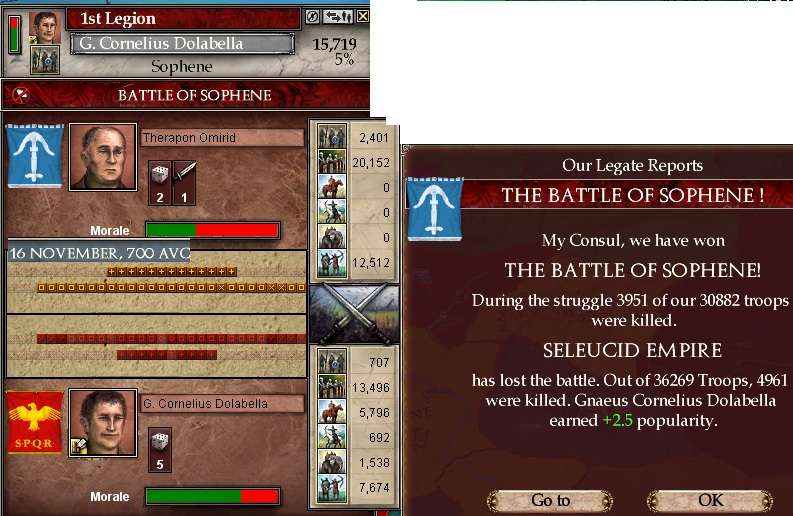
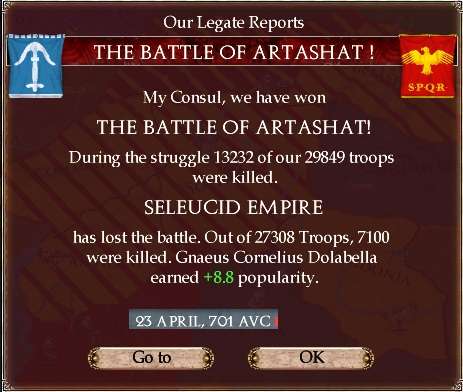
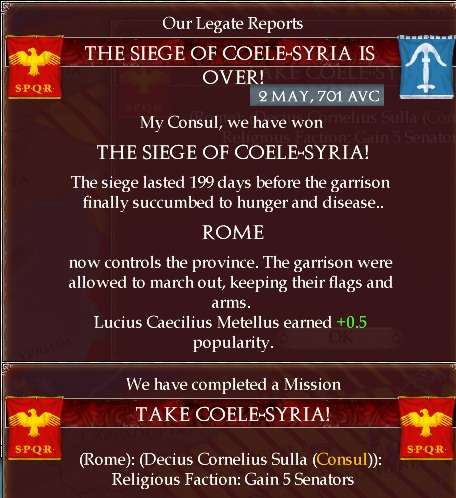

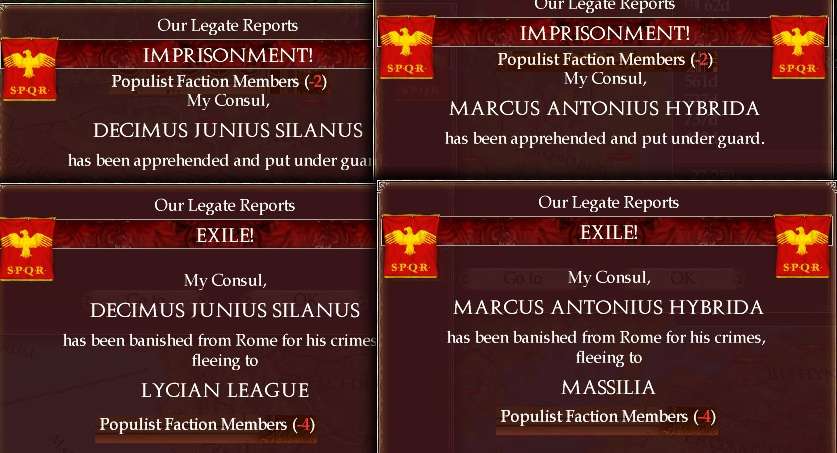
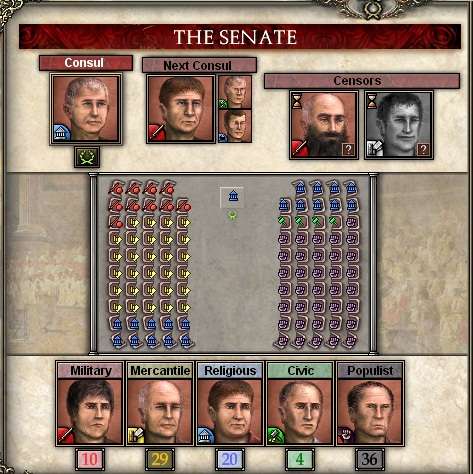
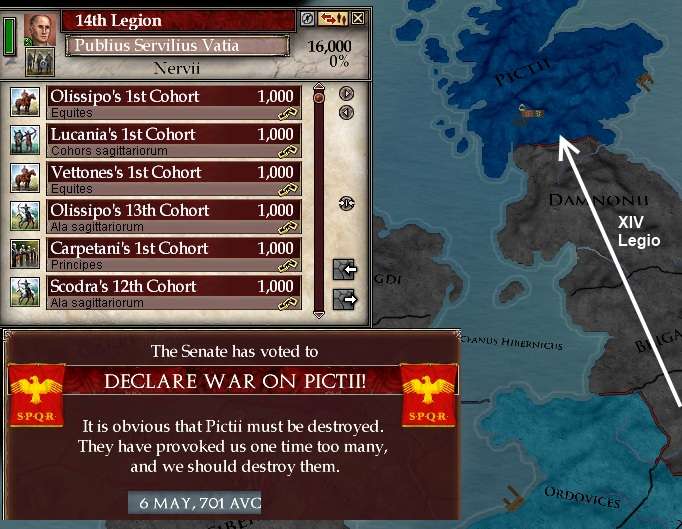
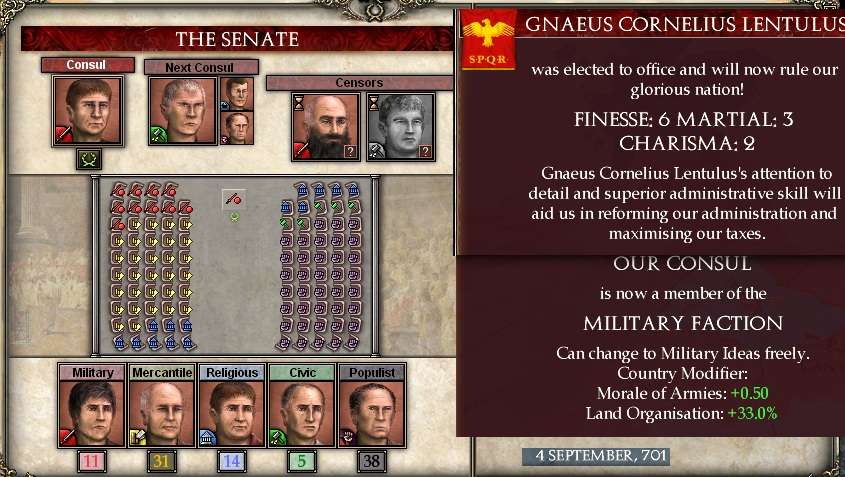
In consequence, the 14th legion was dispatched to bring Roman civilisation to the far north.
What was really not expected is what happened next.
In terms of futility, this might be on par with Sisyphus pushing that rock up the mountain.
Good war against the Seleucids, but wouldn't it have made more sense to try to connect your Syrian possessions with your Anatolian ones, instead of expanding into Armenia? I don't know the map well enough, but I'd wager that there's only one Mediterranean province separating your Levantine holdings from Asia Minor - Antioch?
You tease!
I'm guessing the Populists strike back in some fashion, they certainly need to having been decimated in recent years. War with the Seleucid's went very well, some nice gains made. Now though we can see the beginning of the downfall of the Roman Empire in your game; bothering to conquer the Picts can bring nothing but woe!


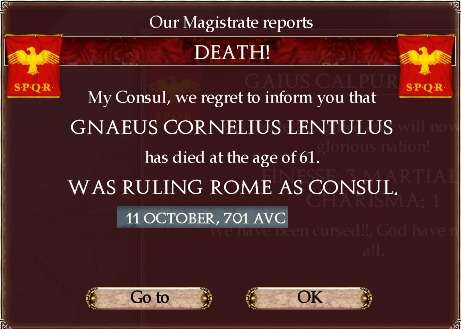
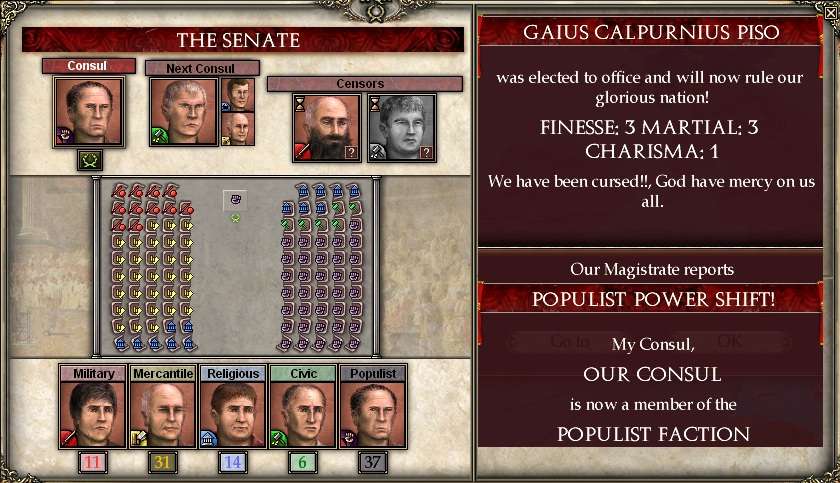
This vacuum was filled by, of all people Gaius Piso. Meeting in a mostly empty Senate house, he was proclaimed Consul.
